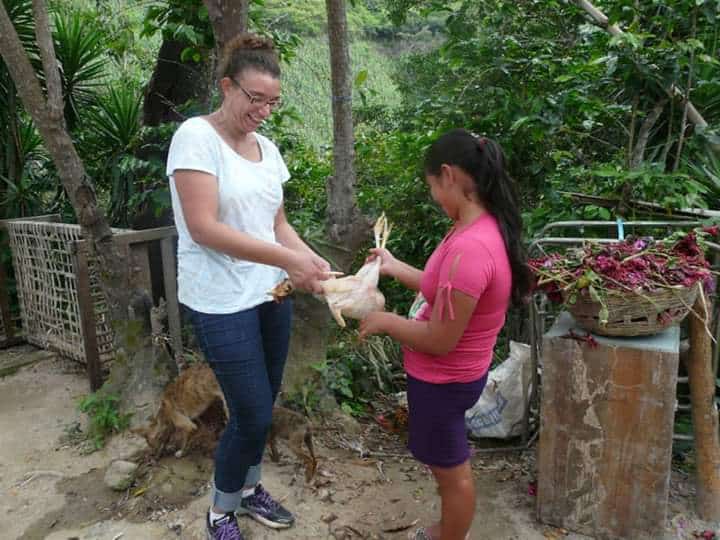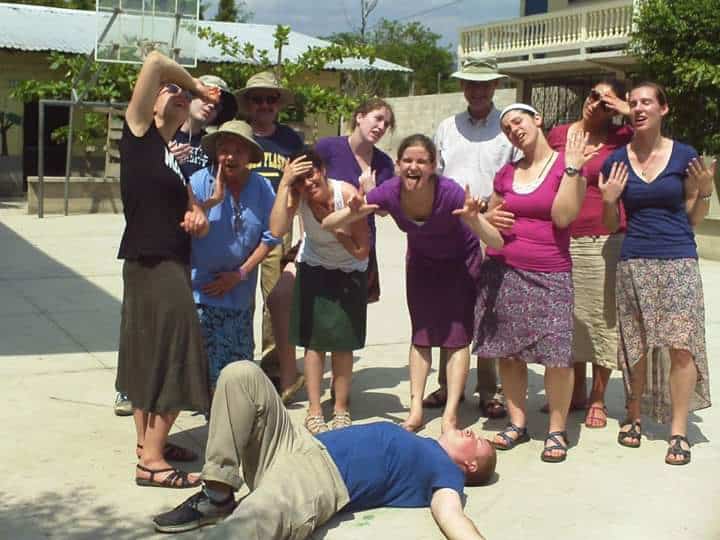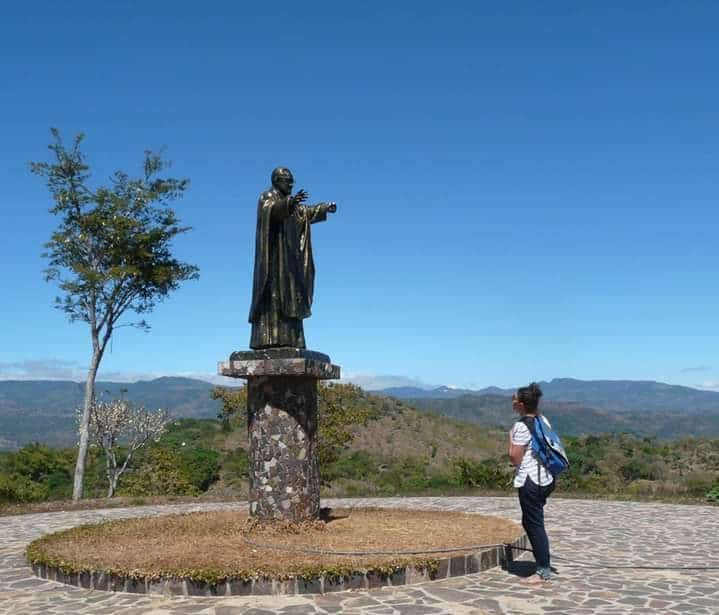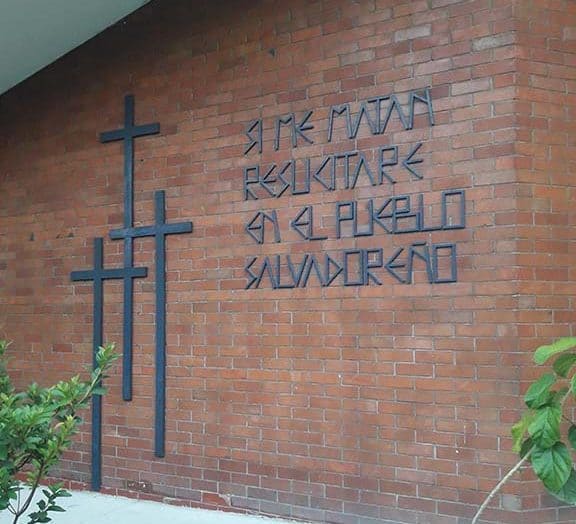Fresh Chicken

All chickens aside, his stories about El Salvador piqued my interest. Here was a country that had never showed up in the cultural insets in my Spanish books, was only the size of Massachusetts, and seemed to be best known for its pandillas (gangs). Nevertheless, when the opportunity arose for me to visit, I didn’t hesitate. My dad complained that I never went anywhere “boring” – but there are so many “interesting” places to see!
Despite what I’d learned in the intervening years, nothing prepared me for actually BEING in El Salvador. Aside from the heat, which hits like a wall as you step out of the airport, I just felt something different in the atmosphere. The next day, as we sat around during breakfast, our host, Fr. Rafael Fuentes, shared some words of wisdom.
You may, he told us, be more economically privileged and educated than the people you will meet. But do not discount what they have to share with you. The people of my country have an abiding, vital love for the Catholic faith and a deep sense of hospitality. Come not to give, but to receive. And receive with grace.


San Romero
If they kill me, I shall rise again in the Salvadoran people.

And he has. His spirit, made manifest in marches, keychains, street names, posters, busts, slogans, and t-shirts, still resonates most strongly in his people. In some ways, his sacrifice is one that many people share. “How many children do you have?” I once asked my friend Milagro’s mother. “I had seven,” she replied, “but I lost one in the war.” But I lost one in the war. And my friend Carlos, when I asked him about his siblings, “We were ten, but we lost one in the war.” But we lost one in the war.
To me, St. Romero’s legacy, however, is not one of sadness, invoking the pain suffered during the war years, but rather, one of inspiration. Romero fought for peace and rights for his people. His legacy calls to us to do the same, to never stop fighting for the poor and the marginalized, to be, as he said, a voice for those without a voice.
Romero's Living Legacy
When I say that Romero’s spirit lives on his people, there are two ways I have seen this take shape. The first is in the every-day, the little things that people probably don’t even think about until an outsider connects the dots. Vladimir lent me his well-worn Piezas de un retrato, a thousand and one vignettes of those who interacted with Romero throughout his life. Carlos incorporates Romero’s homilies into his language classes. Mila keeps the keys to her bakery on a little wooden fob etched with Monseñor’s image. Even her sister, who is the most eminently practical woman I have ever met, not to mention frugal, pulls on a Romero t-shirt once in a while. And what is incredible about these people, people my age, is that they were born AFTER his death. None of them heard his homilies live on the radio or met him as he traveled around his diocese. None of them saw how he was murdered during Mass. None of them watched the bloodbath that occurred at his funeral. Everything they know about Romero is second-hand, but nothing about their love for him is.
Then, there are those who have taken St. Romero’s exhortation to be close to the poor to heart. In his homily on February 5, 1978, Romero told listeners,
There is one way to know if God is near to us or far away: anyone who is concerned for the hungry, the naked, the poor, the disappeared, the tortured, the prisoner, for all those who are suffering, that person is near to God.
Fr. Martin Maier, a Jesuit priest who once served in El Salvador, calls to us in his reflection on Romero’s canonization,
We can only fittingly venerate Saint Oscar Romero when we walk his way. When we speak the truth about this world, a world of victims; when we ask the question about the reasons for poverty and injustice; when we call the idols of our age by name and resist them; when we are prepared for danger and conflict; when we are borne by the conviction that self-gift is more powerful than egoism and that love is stronger than death.
This is the gift of St. Romero, the gift of Christ. A love that is stronger than death. A self-gift that has inspired others to continue walking in those footsteps. Others like Fr. Rafael who opened a low-cost clinic and a school for the poor. Others like Fr. Ken Myers, who founded a home for war orphans. Others like COAR’s current director, Marta, who continues to serve El Salvador’s most vulnerable and continues Fr. Ken’s legacy. Others like you and me, who in our own humble ways give of ourselves in our concern for those who are suffering.
